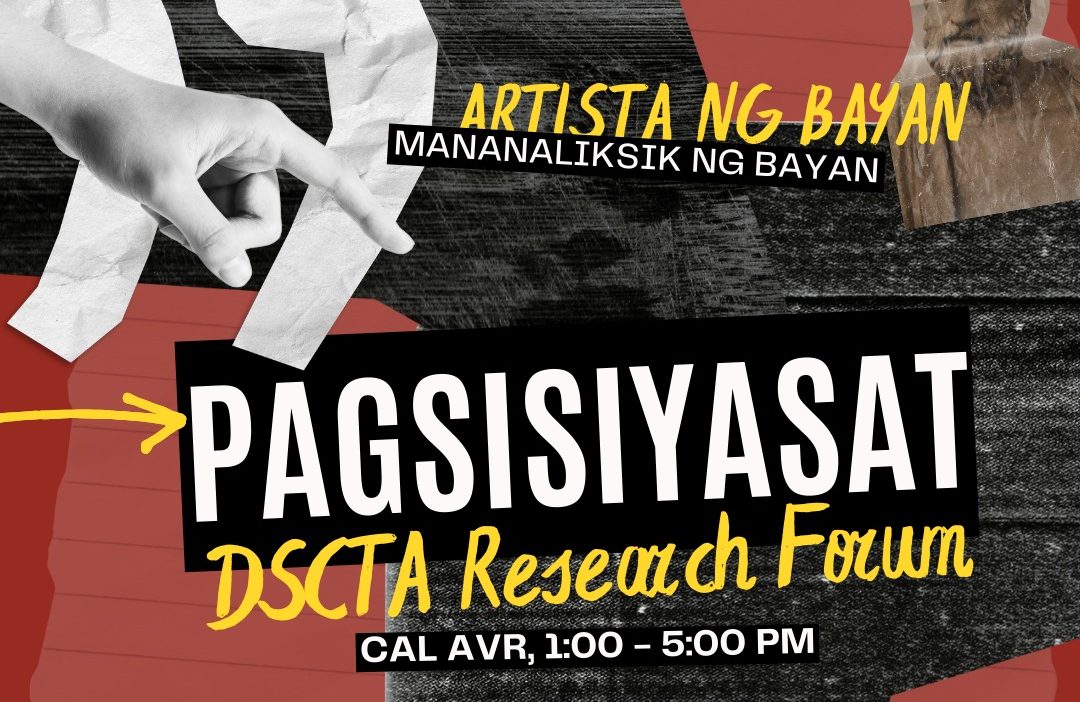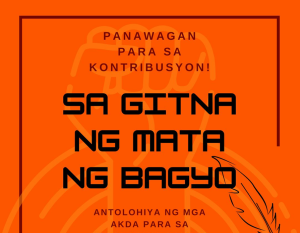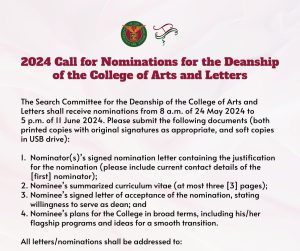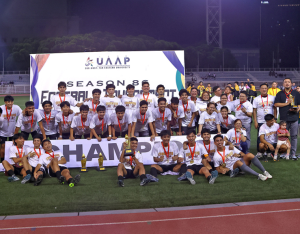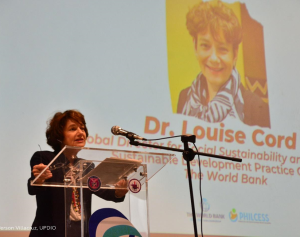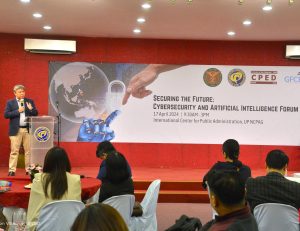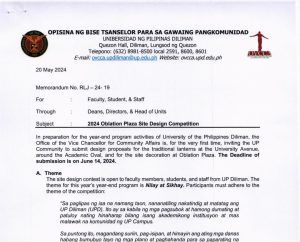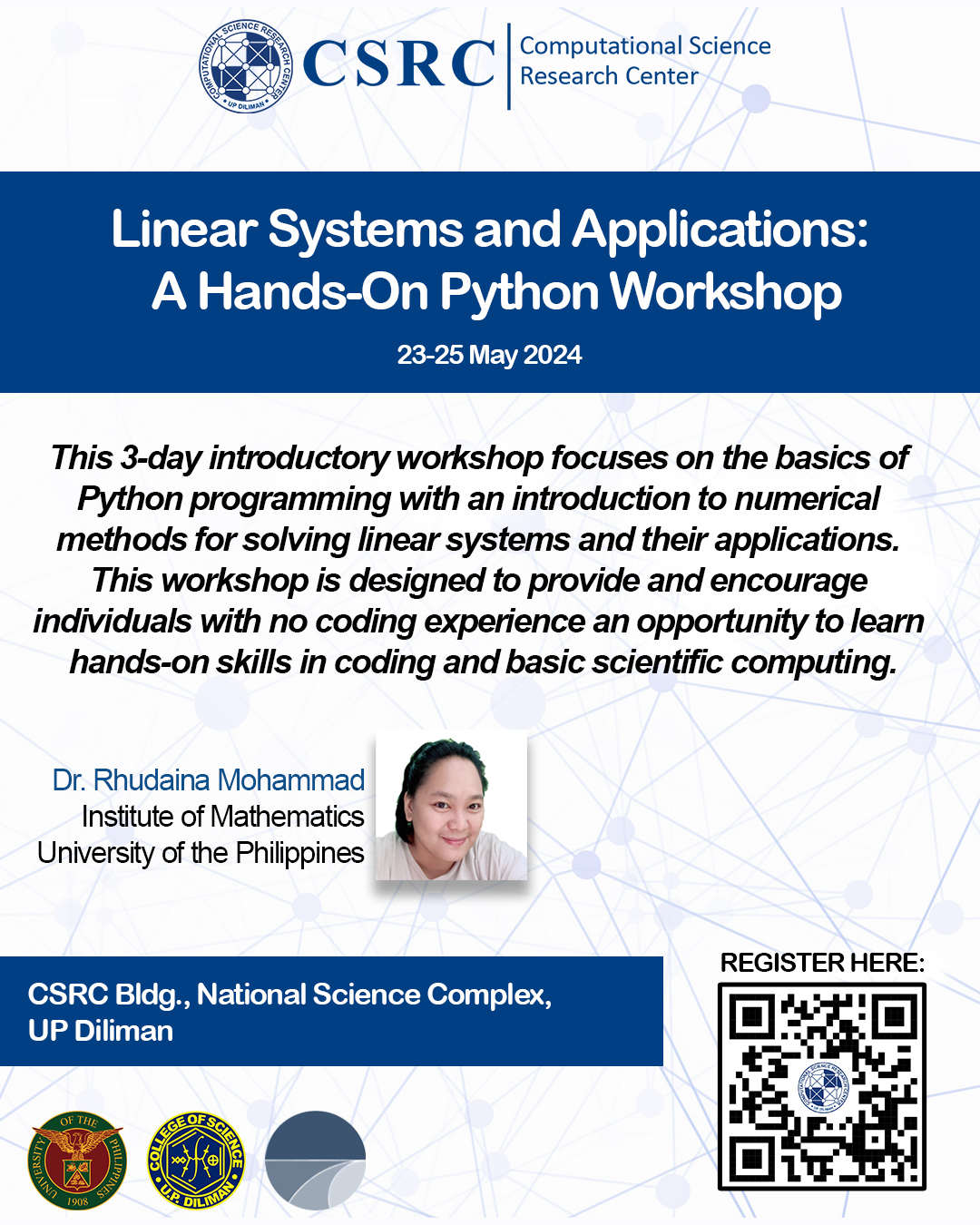UPDate ONLINE

UPD recognized units, personnel for QA-related accomplishments
UP Diliman (UPD) units and personnel were recognized for their quality assurance (QA)-related accomplishments at the recent Kahusayan: Seremonya ng Pagkilala sa Kagalingan sa QA, the culminating activity of the QA Week 2024. UPD Chancellor Edgardo Carlo L. Vistan II lauded the UPD Quality Assurance Office (QAO) for its efforts in bringing together different stakeholder […]

Ugnayan eksibit sa QC
Pormal na binuksan ang eksibit na UGNAYAN: Mga Kuwento ng Talában sa Pamayanang UP Diliman (Ugnayan) noong Mayo 14 sa lobby ng Gusaling Panlungsod ng Quezon. Ang eksibisyon ay tungkol sa pagdiriwang at pagbabalik-tanaw sa mga pagbabago sa pamayanan ng UP Diliman (UPD), at pag-alala rin sa paglipat ng UP mula sa Manila patungong UPD […]

Himigsikan 2024 goes to QC city hall
The summer heat did not deter the crowd at the Risen Garden of the Quezon City Hall as UP Diliman (UPD), through the Office for Initiatives in Culture and the Arts (OICA), staged the second installment of its Himigsikan 2024 mini-concert series. The concert celebrated several milestones: the 75th anniversary of the University’s move from […]
Events
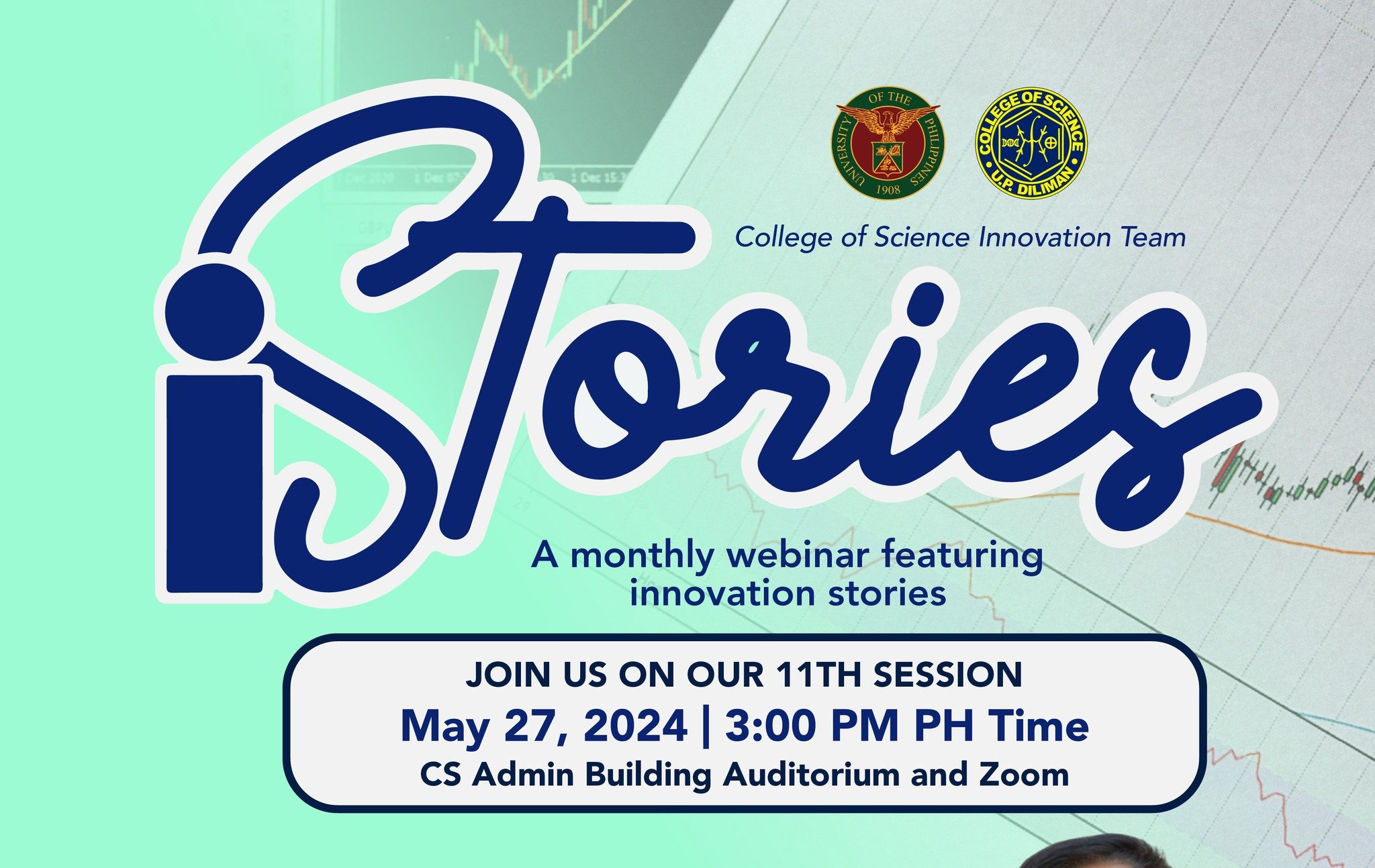
Why Are There No Takers? Understanding White Space Analysis, Freedom to Operate, Risk, and Value in Scientific Research
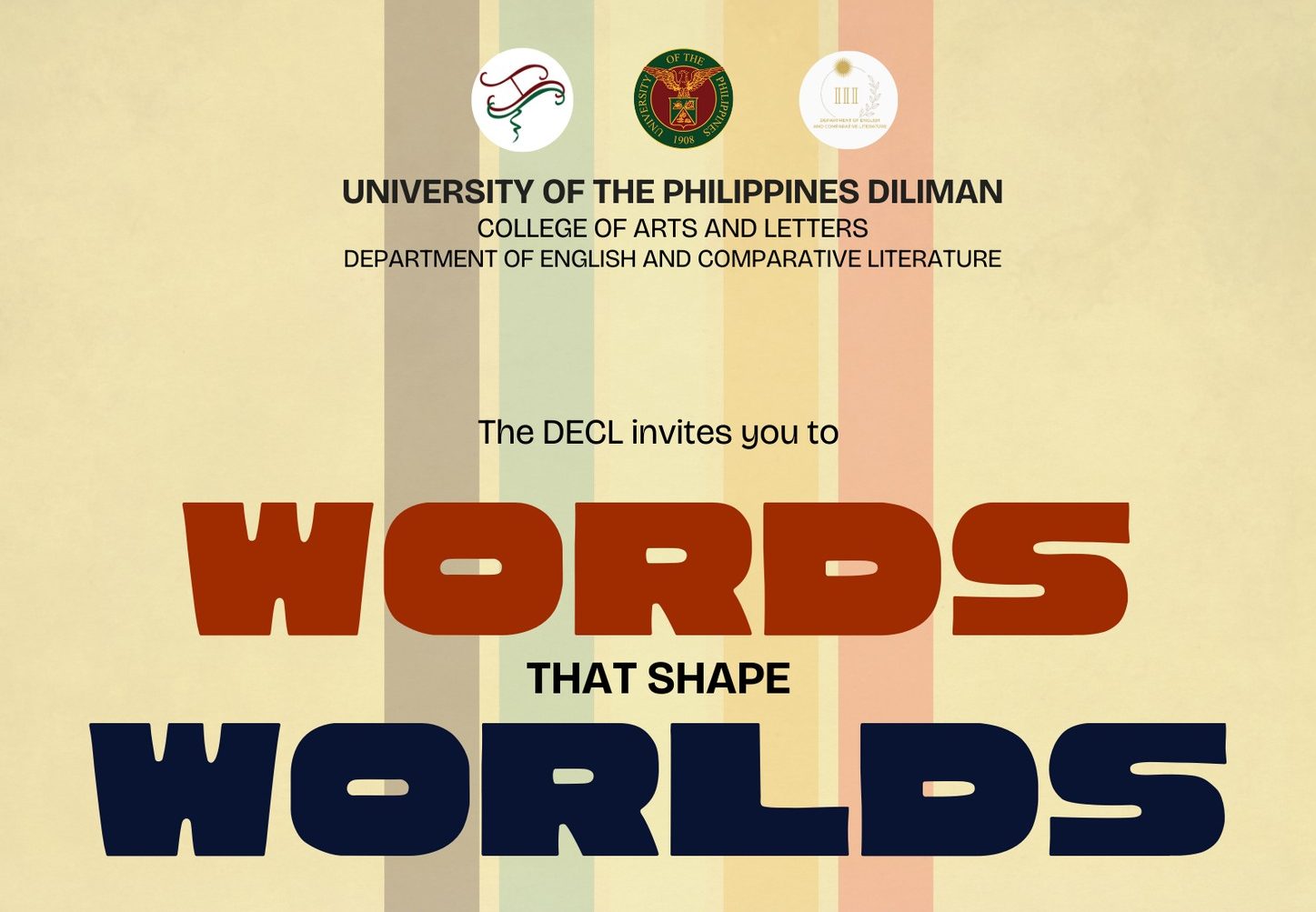
Words That Shape Worlds: Extending the Discourse on Gender, Media, Technology, Law, and Politics
